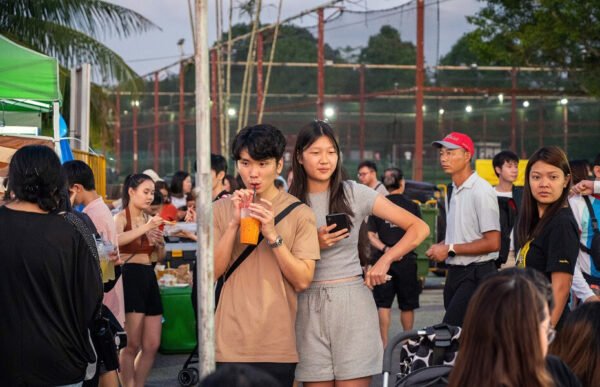
How to Survive (and Enjoy) a Party as an Introvert

For many introverts, the anticipation of attending large social gatherings such as a wedding, summer party or even a trip down to your local pub garden can elicit a mix of both excitement and apprehension. The lure of retreating to the familiar confines of your home might be strong. Nonetheless, you can’t always opt out of social occasions, but there are ways to train yourself to enjoy them.
We spoke to chartered occupational psychologist Paula Brockwell to create the perfect guide to both surviving and thriving social situations as an introvert including tips before, during and after a party.
What is an introvert?
Paula explains that the general definition is that introverts are shy, reserved and quiet, but from a psychology perspective, we think more about brain physiology and what drives introversion.
Paula states that introverts will usually seek out less interaction and action, and also get more easily overwhelmed than extroverts as their brain reaches overwhelming levels of activity more quickly than extroverts.
This makes introverts less interaction-seeking and as such note are likely to experience higher levels of social anxiety. For two reasons, they seek it out less so they are less practised but also because they know it can lead to feelings of overwhelm and burnout.
When it comes to social situations and saying no, Paula states that you should “only do what you feel able to do, but if you face your fears you’ll have more ability to do things that scare you. Over time the more we do things that scare us, the less scary they become, our brain adapts, gets evidence our fears are unfounded and helps us get more comfortable. But do it on your good days, when you have the energy and bravery to push yourself. The less we do the more our fears can grow and have power”
So you can face your fears and enjoy a summer full of fun social events, we’ve pulled together some top tips for preparing prior to, during and after a party:
Before the event:
1. Build up your energy up
Paula states that before a party, you should build up your energy ahead of time to prepare yourself to socialise and do some things that boost and restore you, it’s likely some quiet time will help. Nature and natural light are calming and energy-boosting – so go for a walk somewhere pretty.
2. Set yourself some safety strategies
Paula also advises that before an event you speak to your friends or partner about your concerns and what they can do to help at the moment. Make them aware of your escape plans, as this will ensure you leave when you want to leave. This may mean driving your car or making an agreement with a friend who’s willing to leave when you’ve had enough.
3. Get a good night’s sleep
Ensure you prioritise a restful night’s sleep before attending a social gathering to recharge your energy. Nobody enjoys socialising when they’re fatigued and irritable, so a good night’s sleep will leave you feeling refreshed and lively, making social interactions much more effortless.
4. Do your research
To alleviate any pre-event concerns and ensure preparedness, try and gather all the details about the event you are attending well in advance. This could include the address of the venue and directions, the events start and end times, any dress code requirements, whether there will be food available and the guest list. By doing so, you’ll be able to anticipate and prepare accordingly, freeing yourself from unnecessary worries and uncertainties before the event.
During the event:
1. Take breaks
Paula also recommends upon arriving at the event, to scope out somewhere you can retreat momentarily for a breather. Whether it’s the bathroom or an outside area, having a quiet spot to escape to can be immensely helpful if you start feeling overwhelmed or drained by the surroundings.
2. Distract yourself
Another coping strategy to navigate social events is to engage in the activities and participate. While this might appear daunting for introverts, taking part in the event’s activities can help serve as a helpful distraction from any anxiety you might be experiencing. It might also present an opportunity to connect with others, potentially making new friends and allow you to feel a sense of relaxation in the process.
3. Avoid too much alcohol
Although it can be tempting to just head straight to the bar, Paula states that while alcohol can help to make us feel initially braver, there is a risk that it lowers our inhibitions so much we do things we wouldn’t normally, making the party great ammunition for our fears and image, making the next party harder. So stay in control, it’ll help to teach you that you can face anything as yourself.
4. Look out for other introverts
Despite feeling like you are alone, it’s important to recognise that many other individuals at the event may share similar feelings. If you find yourself without a social companion, take a moment to scan the room and seek out fellow introverts who might also appreciate some company. Keep an eye out for subtle cues and approach those who seem open to engaging in conversation or seeking companionship. This might involve having a quiet conversation with the person next to you, maybe you can bond about how few people you know.
5. Keep your fears in check
Paula notes that generally with many anxieties our brain convinces us that our fears are more real and disastrous than they really are, getting them out of our heads and challenging them can really help reduce their power. Use the prep you’ve done to stop your head spinning into a negative cycle, keep asking, is this fear true and what’s the worst that could happen?
After the event:
After a big social event, it’s common to experience tiredness and possibly even mild anxiety in the following days. You must give yourself time and prioritise yourself. Give yourself ample time to decompress and relax, such as reading a book or having a bath. Paula suggests having some quiet time and doing something you love to boost your mood.
By allowing yourself this necessary downtime, you can effectively recharge and restore your energy levels
Paula also recommends in the days following a big social event, if you feel anxious about something you said or did, be honest with your fears and talk to others, asking for their feedback. If your head is still caught on something ask yourself ‘What would I have thought if someone had said/did that?’ it’s very likely you wouldn’t view someone else as negatively as you are yourself.
How you can help an introvert as a host
We also spoke to Paula about the things you can do to help introverts if you are hosting. Paula said, “The first thing is not to assume everyone needs to be loud and involved, for many introverts it is okay to be at the side and observing.”
“Don’t force people to participate in things in front of others if they don’t want to. Think about having a variety of activities, so there are things that those who are less extroverted could enjoy. Make sure you have some quiet spaces to chat 1-1, using games that people can focus on the task rather than performing such as card games”
“You could also do more subtle 1-1 introductions and connections rather than making everyone introduce themselves to a group.”
By employing these tips, hopefully, you can improve your experience at social gatherings and make them less daunting. While it’s true that introverts may not typically anticipate parties with great enthusiasm, it doesn’t mean they have to endure misery either. With the right strategies and mindset, you can strive to find a balance that allows you to navigate social events in a more enjoyable and fulfilling manner.














































